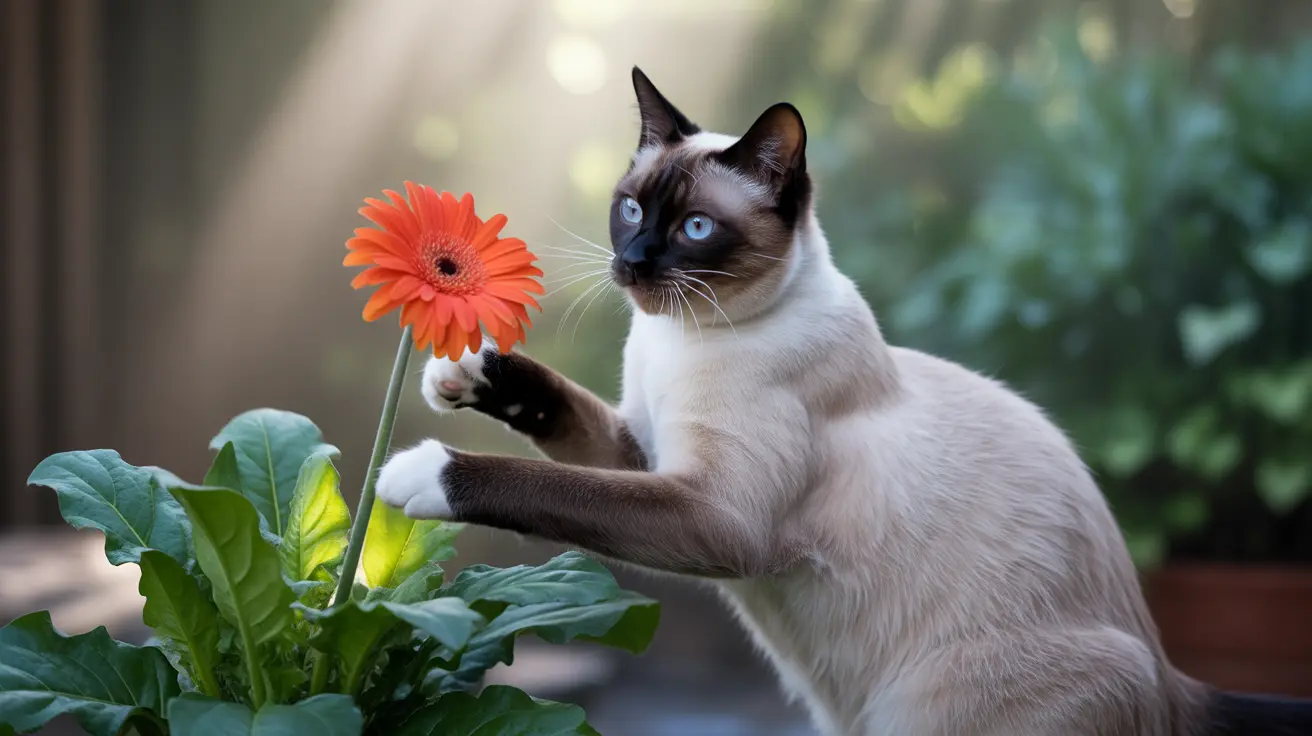As a loving cat owner, you want to create a safe environment for your feline friend. One potential hazard you might not be aware of is the seemingly innocent daisy. While these beautiful flowers may look harmless, some varieties can pose significant risks to your cat's health. Understanding which daisies are toxic and how to protect your pet is crucial for responsible pet ownership.
In this comprehensive guide, we'll explore the potential dangers of daisies to cats, helping you keep your furry companion safe and healthy.
Types of Toxic Daisies: What Cat Owners Need to Know
Not all daisies are created equal when it comes to feline safety. Chrysanthemum daisies, including common or English daisies, are particularly problematic for cats. These flowers contain several toxic compounds that can cause various adverse reactions if ingested.
Toxic Compounds in Daisies
The primary toxic elements in daisies include:
- Pyrethrins
- Sesquiterpene lactones
- Saponins
- Oxalates
- Tannins
Recognizing Symptoms of Daisy Poisoning in Cats
When a cat consumes toxic daisies, several symptoms may manifest, indicating potential poisoning. It's essential to be vigilant and recognize these signs early:
Gastrointestinal Symptoms
- Vomiting
- Diarrhea
- Excessive drooling
- Potential gastrointestinal bleeding
Neurological and Skin Reactions
- Incoordination
- Wobbliness
- Dermatitis
- Skin irritation
Understanding the Risk Factors
The severity of daisy toxicity isn't a one-size-fits-all scenario. Several factors influence the potential harm to your cat:
Dosage Matters
- Minimal risk from chewing a few petals
- Larger consumption increases potential for serious symptoms
Vulnerable Cats
- Cats with pre-existing conditions like inflammatory bowel disease
- Cats with chronic kidney disease may be more susceptible
Immediate Steps if Your Cat Eats Daisies
Quick and calm action is crucial if you suspect your cat has ingested toxic daisies:
- Remove any remaining plant material immediately
- Monitor your cat closely for symptom development
- Contact your veterinarian for professional guidance
- Have the ASPCA Animal Poison Control Center number ready: (888) 426-4435
Safe Alternatives and Prevention
To keep your cat safe, consider these preventive measures:
- Remove toxic daisies from your home and garden
- Choose pet-friendly plants like Gerbera daisies
- Create barriers to prevent cat access to potentially harmful plants
- Educate family members about plant toxicity
Frequently Asked Questions
Are all daisies toxic to cats, or are some varieties safer?
Not all daisies are equally toxic. Chrysanthemum daisies are harmful, while Gerbera daisies are generally considered non-toxic. Always research specific varieties before bringing them near your cat.
What are the common symptoms of daisy poisoning in cats?
Common symptoms include vomiting, diarrhea, excessive drooling, skin irritation, and neurological signs like incoordination or wobbliness.
How can I prevent my cat from eating daisies at home?
Remove toxic daisies, use plant barriers, place plants out of reach, and consider pet-friendly alternative plants.
What should I do if I suspect my cat has ingested daisy parts?
Remove the plant, monitor your cat for symptoms, and contact your veterinarian or animal poison control for professional advice.
Can eating daisies be fatal for cats, and what are the risk factors?
While rarely fatal in healthy cats, daisy ingestion can cause significant discomfort. Cats with pre-existing health conditions are at higher risk of severe reactions.






